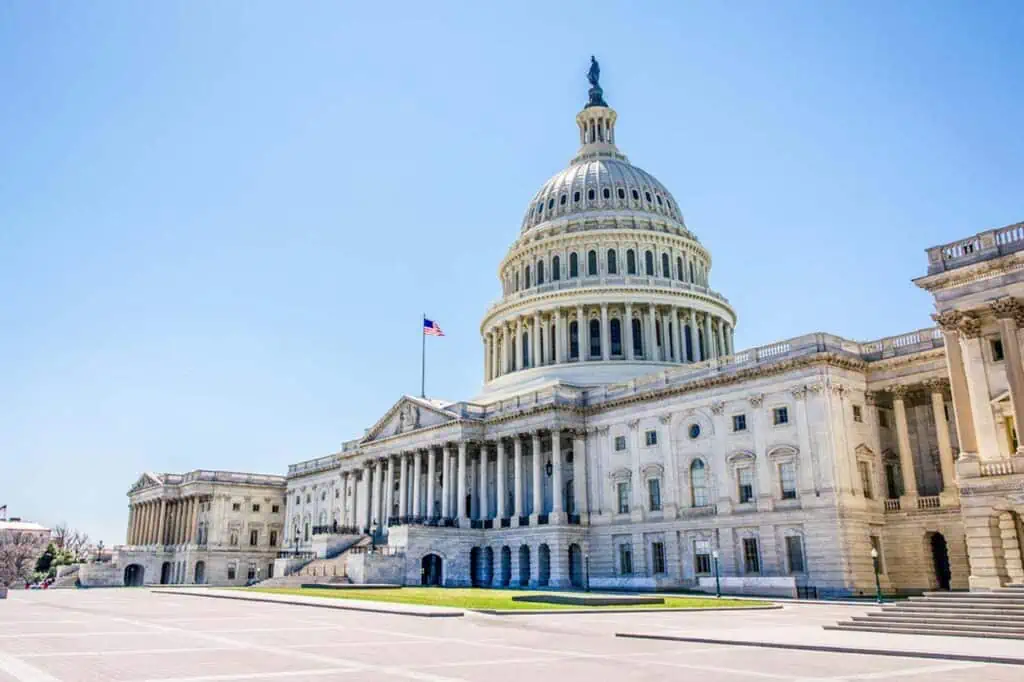Historic Bipartisan Legislation Poised to Advance Workforce Inclusion
[An earlier version of this blogpost was published on October 10, 2022.]
When Lubab Al-Quarishi was forced to flee Baghdad with her family in 2014, she had been a practicing, licensed pathologist for 18 years in Iraq. Since her resettlement in the United States, Lubab has worked in food service and as a pharmacy technician. She is currently employed as a lab assistant and has mostly earned minimum wage. Multiple hurdles— principally the lack of recognition of her Iraqi credentials and experience —have prevented her from relicensing as a physician in the U.S. Lubab received a temporary license to support emergency COVID-19 pandemic relief in her home state of New Jersey, but the policy has since expired—leaving Lubab without an accessible path to practice medicine.
“I am a U.S. citizen. I spent 12 years of my life receiving an excellent education and dedicated myself after graduation to serving people as a physician and doing research as a scientist. Yet, my training, skills, and experience have been undervalued in the U.S.,” Lubab said.
On September 19, the Bridging the Gap for New Americans Act passed Congress, making progress to ensure the economic mobility of more than two million college-educated immigrants and refugees like Lubab who are currently unemployed or underemployed in the U.S.; 60 percent hold credentials earned in other countries.
[Update: President Biden signed the Bridging the Gap for New Americans Act on October 17, 2022.]
The bipartisan legislation calls on the U.S. Department of Labor to study systemic barriers to employment and issue recommendations for reform. More than 200 institutions representing the non-profit, higher education, philanthropic, and government sectors came together to support this legislation.
Read more about the law in our recent press release.
Progress Toward an Inclusive Workforce
The legislation, first introduced in 2020, marks progress toward ensuring a more inclusive and robust workforce. Workforce staffing shortages are especially acute in sectors like health care: The U.S. faces a deficit of up to 124,000 physicians by 2034. At the same time, an estimated 165,000 immigrants and refugees holding health credentials earned abroad are unemployed or underemployed.
In an effort to address long-standing local workforce challenges, states have developed effective programs and policies that advance the recognition of credentials and promote the workforce inclusion of immigrants and refugees. By committing to study the factors impacting employment opportunities of immigrants and refugees with credentials earned abroad, the federal government can promote these models and provide a blueprint for long-needed reform.
Supporting Implementation
“There are hundreds of thousands of people like me—immigrants and refugees with international education, training, and experience—who are ready to use our credentials and get to work in our communities across the U.S.,” Lubab said. “It’s time for internationally trained immigrants and refugees to be treated with dignity and have fair access to work opportunities in the U.S.”
WES looks forward to engaging with DOL and other relevant agencies and stakeholders in developing and conducting a comprehensive study that will support immigrants and refugees living in the U.S. with credentials from another country.
Your organization can join the #UntappedTalent campaign to open pathways so that everyone has a fair chance of reaching their educational and career goals. Learn more.





